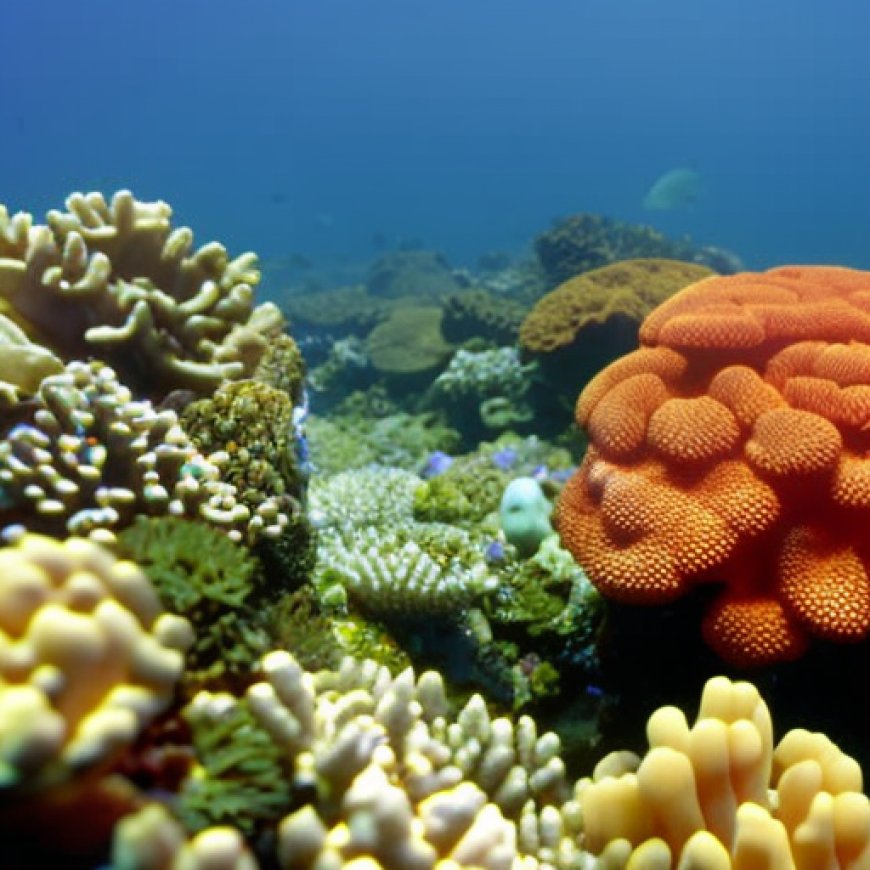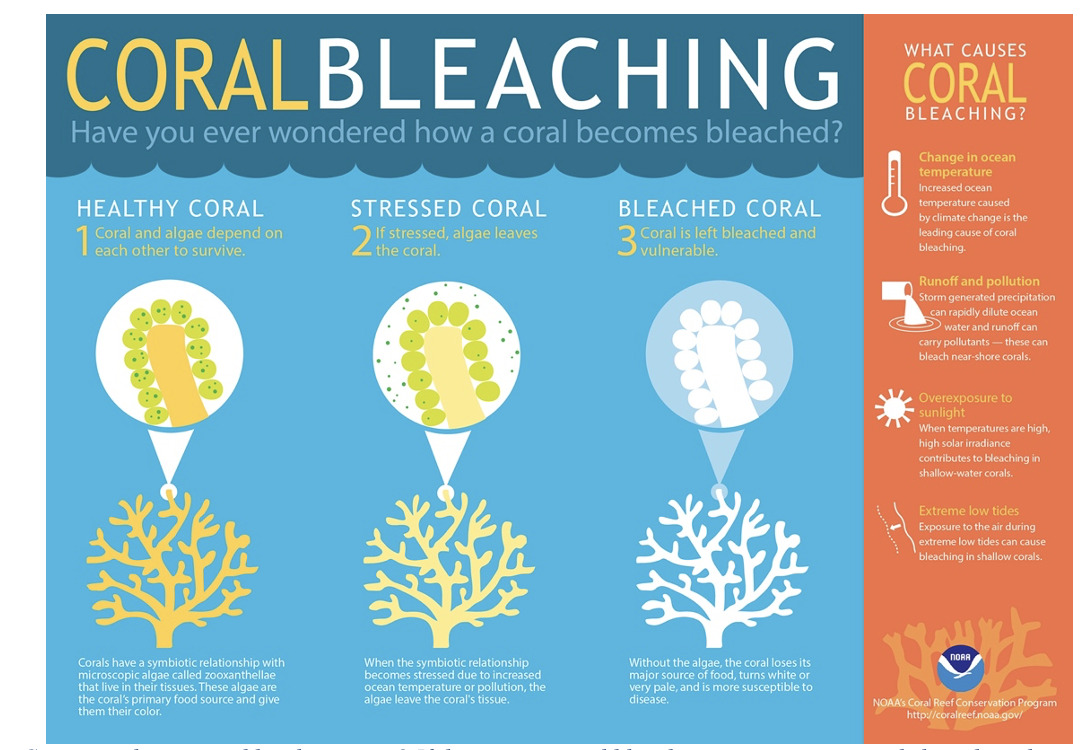Fourth Global Bleaching Event Threatens Corals Worldwide – Impakter
Fourth Global Bleaching Event Threatens Corals Worldwide Impakter


Healthy Coral Reefs: A Crucial Component for Sustainable Development
Healthy, thriving, and resilient coral reefs are essential for a healthy planet. One billion people depend on coral reefs for coastal protection, recreation and tourism, sources of animal protein, and fisheries. Coral reefs support livelihoods and generate values of up to USD 9.9 trillion each year. Coral reefs also hold strong cultural and traditional values with a significant proportion of dependency from Indigenous Peoples, local communities, and island nations. Yet, despite this immense value to people and nature, coral reefs continue to face mounting threats.
The Decline of Coral Reefs
It is estimated that approximately 50% of coral reefs have been lost since the 1950s. The Global Coral Reef Monitoring Network (GCRMN), an operational network of the International Coral Reef Initiative (ICRI), highlighted a 14% loss of the world’s coral reefs in 2009-2018, driven by climate change and anthropogenic stressors.
On 15 April 2024, the US National Oceanic and Atmospheric Agency (NOAA) and ICRI emphasized the continuing decline of these critical ecosystems through the announcement of the world’s Fourth Global Coral Bleaching Event. This event, the second in ten years, was confirmed by NOAA and ICRI’s network of global coral reef scientists.
Global Impact of Coral Bleaching
Mass bleaching of coral reefs since early 2023 has been confirmed in over 50 countries, territories, and local economies, including Florida (US), the Caribbean, the Eastern Tropical Pacific (including Mexico, El Salvador, Costa Rica, Panama, and Colombia), Australia’s Great Barrier Reef, large areas of the South Pacific (including Fiji, Vanuatu, Tuvalu, Kiribati, and the Samoas), the Red Sea (including the Gulf of Aqaba), the Persian Gulf, and the Gulf of Aden. Reports have also been confirmed of widespread bleaching across parts of the Western Indian Ocean, including Tanzania, Kenya, Mauritius, Seychelles, Tromelin, Mayotte, and off the western coast of Indonesia.


This finding must be viewed as an urgent call for immediate action for coral reefs and a clear warning for the state of the global Ocean, its biodiversity, and the entirety of the human population who depend on it. Where coral bleaching results in mortality (Figure 2), especially on a widespread scale, it impacts economies, livelihoods, food security, and more. Coral reefs harbor upwards of 25% of all marine biodiversity. Thus, their decline threatens the existence and survival of at least one in every four living organisms in the Ocean.
Join us, as fellow seekers of change, on a transformative journey at https://sdgtalks.ai/welcome, where you can become a member and actively contribute to shaping a brighter future.

%3C/li%3E%0A%3Cli%3EPercentage%20of%20coral%20reefs%20lost%20in%202009-2018%20(indicator%20for%20SDG%2014.2)%3C/li%3E%0A%3Cli%3ENumber%20of%20countries,%20territories,%20and%20local%20economies%20affected%20by%20coral%20bleaching%20(indicator%20for%20SDG%2014.2)%3C/li%3E%0A%3Cli%3EArea%20of%20shallow-water%20tropical%20coral%20reefs%20under%20effective%20protection%20(indicator%20for%20SDG%2014.5)%3C/li%3E%0A%3Cli%3EAmount%20of%20investments%20secured%20for%20the%20resilience%20of%20coral%20reefs%20(indicator%20for%20SDG%2014.5)%3C/li%3E%0A%3C/ul%3E%0A%3Ch2%3ESDGs,%20Targets,%20and%20Indicators%20Table%3C/h2%3E%0A%3Ctable%3E%0A%3Ctr%3E%0A%3Cth%3ESDGs%3C/th%3E%0A%3Cth%3ETargets%3C/th%3E%0A%3Cth%3EIndicators%3C/th%3E%0A%3C/tr%3E%0A%3Ctr%3E%0A%3Ctd%3ESDG%2014:%20Life%20Below%20Water%3C/td%3E%0A%3Ctd%3E14.2:%20By%202020,%20sustainably%20manage%20and%20protect%20marine%20and%20coastal%20ecosystems%20to%20avoid%20significant%20adverse%20impacts,%20including%20by%20strengthening%20their%20resilience,%20and%20take%20action%20for%20their%20restoration%20in%20order%20to%20achieve%20healthy%20and%20productive%20oceans.%3C/td%3E%0A%3Ctd%3E%E2%80%93%20Percentage%20of%20coral%20reefs%20lost%20since%20the%201950s%3Cbr%20/%3E%E2%80%93%20Percentage%20of%20coral%20reefs%20lost%20in%202009-2018%3Cbr%20/%3E%E2%80%93%20Number%20of%20countries,%20territories,%20and%20local%20economies%20affected%20by%20coral%20bleaching%3C/td%3E%0A%3C/tr%3E%0A%3Ctr%3E%0A%3Ctd%3ESDG%2014:%20Life%20Below%20Water%3C/td%3E%0A%3Ctd%3E14.5:%20By%202020,%20conserve%20at%20least%2010%20percent%20of%20coastal%20and%20marine%20areas,%20consistent%20with%20national%20and%20international%20law%20and%20based%20on%20the%20best%20available%20scientific%20information.%3C/td%3E%0A%3Ctd%3E%E2%80%93%20Area%20of%20shallow-water%20tropical%20coral%20reefs%20under%20effective%20protection%3Cbr%20/%3E%E2%80%93%20Amount%20of%20investments%20secured%20for%20the%20resilience%20of%20coral%20reefs%3C/td%3E%0A%3C/tr%3E%0A%3Ctr%3E%0A%3Ctd%3ESDG%2015:%20Life%20on%20Land%3C/td%3E%0A%3Ctd%3E15.6:%20Promote%20fair%20and%20equitable%20sharing%20of%20the%20benefits%20arising%20from%20the%20utilization%20of%20genetic%20resources%20and%20promote%20appropriate%20access%20to%20such%20resources.%3C/td%3E%0A%3Ctd%3EN/A%3C/td%3E%0A%3C/tr%3E%0A%3C/table%3E%0A%3Cp%3E%3Cstrong%3ECopyright:%20%3C/strong%3EDive%20into%20this%20article,%20curated%20with%20care%20by%20SDG%20Investors%20Inc.%20Our%20advanced%20AI%20technology%20searches%20through%20vast%20amounts%20of%20data%20to%20spotlight%20how%20we%20are%20all%20moving%20forward%20with%20the%20Sustainable%20Development%20Goals.%20While%20we%20own%20the%20rights%20to%20this%20content,%20we%20invite%20you%20to%20share%20it%20to%20help%20spread%20knowledge%20and%20spark%20action%20on%20the%20SDGs.%3C/p%3E%0A%3Cp%3E%3Cstrong%3EFuente:%20%3Ca%20href=) impakter.com
impakter.com








